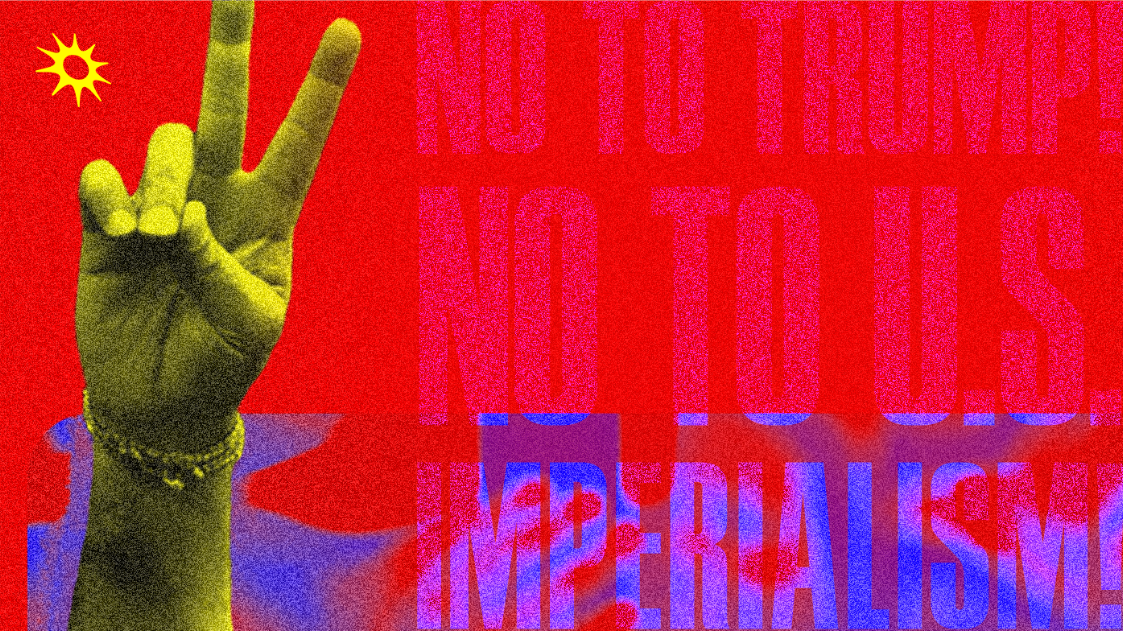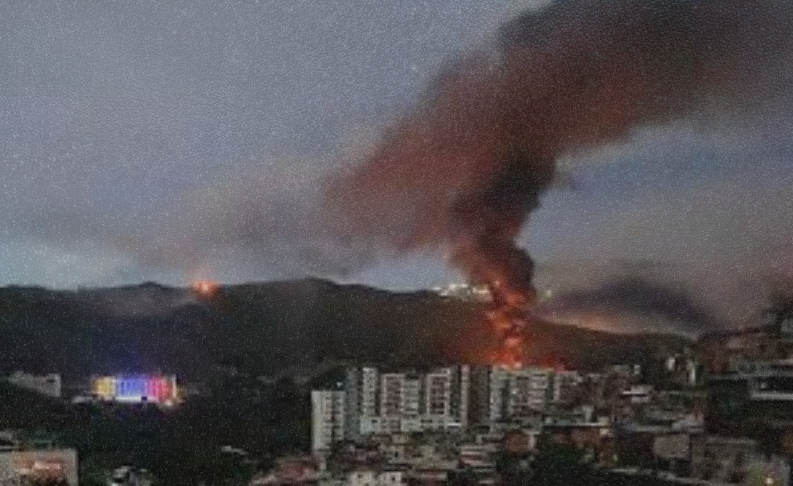PAT Intervention
Forging a New Pan African path: Burkina Faso, Ibrahim Traoré and the Land of the Upright People
“It’s not really terrorism, it’s imperialism. Their goal is to keep us in a state of permanent war so that we cannot develop, and they can continue to plunder our resources.” – Captain Ibrahim Traoré, 10 May 2025
Since his ascension to power on 30 September 2022, Captain Ibrahim Traoré has become a powerful symbol of Pan-Africanism and a stark contrast to the previous state of affairs in Burkina Faso. His leadership embodies unquestionable patriotism, committed sovereignty, and a clear vision for the future.
The emergence of Captain Ibrahim Traoré and a similar style of leadership in the Sahel has reignited hope for Pan-Africanism and inspired the youth throughout Africa. This beacon of hope has triggered a desire among citizens across the continent regarding how their countries should be governed. Indeed, due to his unwavering commitment and patriotism, Captain Ibrahim Traoré has become a star, an inspiration, and a champion of anti-imperialism, posing a genuine threat to imperialism in Africa. He is forging a new path not just for post-colonial African nations, but for the world.
To mention a few examples: Under Traoré’s leadership, the government of Burkina Faso is actively responding to the needs of the people in real time, clearly demonstrating its ability to effectively solve people’s problems. Under his leadership, French military forces have been expelled, and civilian-led Volunteers for the Defence of the Homeland now collaborate with the government and fraternal forces from Niger and Mali to combat terrorist groups, securing the nation through their efforts. The government has also nationalised gold reserves valued at USD 80 million, established a domestic gold refinery, and reduced public sector wages.
Under Traoré’s leadership, the government of Burkina Faso has initiated a bold effort toward self-reliance by launching an agricultural offensive. This has significantly increased agricultural production and led to a consistent GDP growth of 4-6%. These radical measures have not only boosted the economy but also instilled confidence in the material needs of the Burkinabé people being met. In March this year, Burkina Faso inaugurated the first state-owned Faso Kosam-branded dairy factory, followed by more openings and further plans for increased domestic dairy production.
These actions echo the political project of Burkina Faso’s assassinated President Thomas Sankara (1984-87), under whose anti-imperialist leadership significant strides were made. Much like Traoré today, Sankara insisted on self-reliance, agrarian reform, environmental protection, women’s rights, education, healthcare, and the establishment of committees to defend the revolution. Most famously, on 4 August 1984, Sankara renamed the country from the colonial and unimaginative Upper Volta to Burkina Faso – “Land of the upright people.”
Like Sankara, Traoré’s government is removing colonial symbols throughout the country. Judges’ and lawyers’ attire and school children’s uniforms are switching to locally produced fabrics and styles. While this is symbolic, it also conveys a direct and clear message of patriotic pride in one’s country, culture, history, and heritage. Simultaneously, this initiative champions local textile production. As part of commemorating the 36th anniversary of Sankara’s assassination on 15 October 2023, Boulevard Général Charles De Gaulle in Ouagadougou was renamed Boulevard Thomas Sankara. More than a symbol, this action represents an effort to recover the collective memory of the valiant Burkinabé people’s history of resistance and revive Sankara’s legacy within the country’s popular imagination.
In many ways, the steps taken by Sankara and Traoré lie at the heart of the goals and aspirations that drove the Burkinabè people to fight for independence from French colonial rule. Independence, secured on 5 August 1960, was never meant to be reduced to ‘flag independence’. Although adopting a national anthem and flag were important steps, people were, to paraphrase Amílcar Cabral, fighting for concrete things; these concrete things are finally finding expression in the efforts of Traoré’s government, following in the footsteps of Sankara.
No one, least of all the ‘upright people of Burkina Faso,’ is willing to tolerate their status as the thirteenth poorest country in the world indefinitely. The popularity of Traoré’s government must, in part, be understood as a product of the Burkinabé people’s intolerance for the poverty and drudgery imposed on them through decades of slavery, colonialism, and neocolonialism.
A brief look at life expectancy and infant mortality statistics illustrates this starkly: a child born in Burkina Faso is sixteen times more likely to die in its first year than a child born in France, and if they survive, they can expect a lifespan some twenty years shorter than their French counterpart.
The legacy of colonial plunder by France and other imperial powers has left deep scars. Even after independence, mechanisms such as the “Françafrique” cooperation agreements perpetuated monetary, military, economic, and political dependence on France.
The destabilisation of Libya by NATO in 2011 unleashed a wave of terrorist activity across the Sahel. Gaddafi’s Libya had served as a buffer; once it fell, insecurity spread. Despite former French President François Hollande’s deployment of thousands of troops under Operation Barkhane, local soldiers in Mali, Burkina Faso, and Niger grew frustrated—often serving as cannon fodder—while civilians suffered harassment from both terrorist and foreign troops.
Many current Alliance of Sahel States (AES) leaders witnessed these abuses firsthand. Their commitment to sovereignty and development and a firm rejection of Western—especially French—interference stems from these experiences.
Burkina Faso has enacted some of the boldest reforms within the Alliance of Sahel States. The junta’s policies are radical, and Traoré, a young and charismatic leader, enjoys widespread support at home and across Africa. Indeed, he may be the most popular African leader since Thomas Sankara. Similarly, the AES represents a significant Pan-African breakthrough—a beacon of anti-imperialism and a renewed push for socialism in the tradition of Ghana’s Kwame Nkrumah. This underscores the crucial need for solidarity with the AES, as it embodies the shared aspirations of the African people for genuine freedom.
For generations of African revolutionaries, the AES is not just a source of optimism but a beacon of hope. No AES leader has declared socialism as a final goal; instead, they have focused on building the necessary social foundations. The AES, and Burkina Faso specifically under Traoré, represents the weakest link in the chain of imperialism on the African continent, while also embodying the strongest representation of our people’s aspirations for genuine freedom.
Against this backdrop, we are alarmed by the increasing number and sophistication of coup and assassination attempts targeting Burkina Faso’s government. Most recently, a plot originating in Côte d’Ivoire was uncovered. This plot involved current and former soldiers working in coordination with “terrorist leaders.” The plot’s objective was to “sow total chaos, and place the country under the supervision of an international organisation.” The planned assault on the presidential palace was scheduled for 16 April, 2025. The government of Ouagadougou intercepted communications that revealed the plot details and was therefore able to foil it.
These vast achievements inside Burkina and the growing inspiration not only in the Sahel Alliance but in the entire continent challenge the status quo of imperialism and puppet governments in Africa and elsewhere. Consequently, there have been numerous attempts to bring down Captain Ibrahim Traoré to curtail the spread of Traore’s fire on the continent.
We must understand that despite all exemplary deeds and courageous patriotic actions, Traoré’s revolution, like those throughout the AES, remains fragile; it is young and confronts immense challenges, including economic pressure, ongoing security concerns, and sabotage from imperialist powers and their sympathisers. Burkina Faso’s government and people operate in a highly hostile environment.
What then should the posture of progressive forces be?
1. We must recognise and confront the threats to Traoré, the AES, and its leaders. Despite the many contradictions (including the fact that no one can predict whether these revolutions will continue on a progressive path or revert to reactionary politics), it remains clear that a setback here could delay Africa’s revolutionary prospects by decades.
2. We should encourage the people of the AES—especially Burkina Faso—to defend their revolutions, as these are people’s revolutions led by progressive military factions. They cannot be restricted by Western liberal armchair critiques of “democracy.” Their true measure must be the will of the people. As long as they have popular support, they must press on.
3. Those of us outside the Sahel (in mother Africa and throughout the world) must declare our unwavering solidarity with the governments that continue to adopt patriotic measures to reclaim political and economic sovereignty over their territories and natural resources. We are encouraged by the hundreds of thousands of people who took to the streets to defend Traoré and the AES in the wake of the recent coup attempt, not only in Burkina Faso, but also in Ghana, Kenya, Liberia, and beyond.
4. We should use the pens and simple actions to show unwavering support for the revolutions in Burkina Faso and throughout the AES.
Despite extensive propaganda and hesitation among unfamiliar progressive forces, public sentiment in the Sahel remains steadfastly committed to sovereignty, security, and prosperity. Now is the time to heed the call of these governments and their peoples: a simple demand for non-interference.
Let us build on the sentiment of Africa Liberation Day to unite with the popular and revolutionary forces in the Sahel in their struggle for complete sovereignty, total national liberation, and the broader goal of a unified and free Africa.
May the decisive leadership, bravery, and courageous actions demonstrated by Traoré and his comrades in the AES continue to teach us valuable lessons.
Long live patriotism, anti-imperialism, and Pan-Africanism!
In Solidarity,
Pan Africanism Today Secretariat
June 5th, 2025


